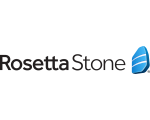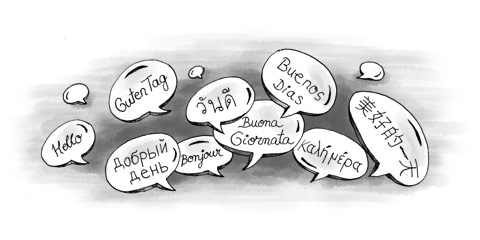DELF and DALF
DELF and DALF diplomas are awarded by the French Education Ministry (Ministère de l'Éducation Nationale) as certificates of French language ability for non-native speakers. The exams can be taken in official centres both in France and in some 130 countries worldwide.
The DELF and DALF are comprised of 6 independent diplomas (Level A1, A2, B1, B2, C1 and C2). These correspond to the six-level proficiency scale of the Council of Europe and are widely recognized. The candidate can register directly for the examination of their choice. You can register at the Alliance Française, the largest French language teaching organization.
- DELF (Diplôme d'Études en Langue Française) is a basic diploma and refers to the levels A1 to B2 (which gives you access to French higher education)
- DALF (Diplôme Approfondi de Langue Française) is an advanced diploma (levels C1 and C2) and allows you to teach French in France.
For more information, visit www.alliancefr.org .
TCF
TCF (Test de Connaisance du Français) is the French Education Ministry's official test for French language ability in non-native speakers. It is an evaluation of general language skills for professional or personal communication.
The scores provide an accurate benchmark corresponding to the six-level scale defined by the Council of Europe. The basic test has 80 questions with two optional sections to evaluate candidate's oral and written skills.
Note that TCF is not the same as DELF/DALF. While DELF and DALF are diploma’s that are valid for life, TCF is just a certificate of grading showing your linguistic skills at the time of completion, and is only valid for two years.
More information about the test and certified testing centres can be found on the CIEP website www.ciep.fr .
TEF
TEF (Test d'Evaluation du Français), like the TCF, is an evaluation of general French language ability. It is organized by Chamber of Commerce and Industry of Paris (CCIP). It can be taken online, in many places in France as well as at over 300 centres abroad. More information can be found under www.fda.ccip.fr .
DPF diplomas and certificates
DPF (Diplômes de Francais Professionnel) certificates and diplomas are issued based on a series of examinations organized by Chamber of Commerce and Industry of Paris (CCIP). They focus on business or specific professions (such as secretarial work, tourism, hotel trade, science, technology and law).
There are three general business diplomas and four specialised ones. The CCIP also runs a certified course in business French for students with a basic level wishing to improve for business purposes. Students sit the diploma examinations at the CCIP or at other examination centres under CCIP supervision. For comprehensive description of all existing DPF diplomas and testing centres, visit www.alliancefr.org . Some main diplomas are:
- DFP Business B2: First level diploma
- DFP Business C1: Second level diploma
- DFP Legal
- DFP Tourism and Hotel Sector
- DFP Medical
CPLF, DEF and DSEF
Recognized by the Ministry of Education, these diplomas are awarded by universities.
- CPLF (Certificat Pratique de Langue Française): Basic diploma of French as a foreign language
- DSEF (Diplôme Supérieur d'Études Françaises): Advanced diploma of French as a foreign language
BULATS
BULATS (The Business Language Testing Service) is a standard assessment of foreign language ability as a written or online test. BULATS also uses the six-level proficiency scale. BULATS offers fast, accurate and internationally recognised language assessments. For more information visit www.bulats.org .
The proficiency scale defined by the Council of Europe
The Council of Europe has developed a European Framework with common reference levels for foreign languages, as described in its reference document for the European Language Portfolio: "Common European Framework of Reference: Learning, Teaching and Assessment".
The framework is designed to allow objective comparison of different levels of language proficiency and aid comparisons between different qualifications. The scale has six levels, two for each of the following categories: basic (A1 and A2), intermediate (B1 and B2) and advanced (C1 and C2).
For more information and a description of each level, see http://culture2.coe.int/portfolio in the Council of Europe website www.coe.int . Further information can also be found on the ALTE (Association of Language Testers in Europe) website www.alte.org .


